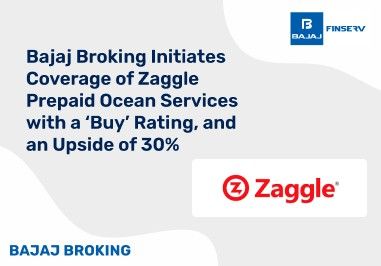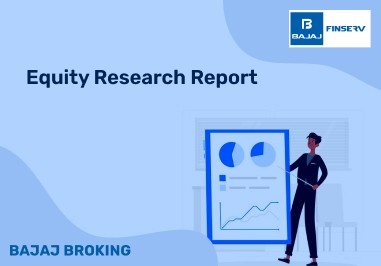BAJAJ BROKING
Infonative Solutions IPO is Open!
Open a Free Demat Account
Trade Now, Pay Later with up to 4x
Track Market Movers Instantly
Iranian President Raisi’s Death Impacts Oil Market
Synopsis:
Iranian President Raisi's death in a helicopter crash causes a 0.5% rise in Brent oil prices and 0.4% in WTI. The incident heightens regional instability and economic uncertainty, affecting global markets and geopolitical dynamics.
An Overview
News of the death of Iranian President Ebrahim Raisi in a helicopter crash on Monday has caused waves of surprise and fear across Iran and the entire Middle East, also forcing global markets to be destabilised.
The event resulted in instant movements in oil prices due to concerns regarding regional stability and economics. The casualties also include Amir-Abdollahian, who was said to have been part of Supreme Leader Ayatollah Ali Khamenei’s close unwavering supporters.
Global Oil Market Response
The investors are paying close attention to likely disruptions in Iran’s oil production and exports. The global oil market has been resilient despite the political instability.
- Brent Crude:/ Increased by 0.5%, reaching $84.39 per barrel.
- WTI Crude: Rose by 0.4%, settling at $80.29 per barrel.
The rise in oil prices reflects cautious optimism about managing supply disruptions. The upcoming OPEC+ meeting on June 1 will be critical in determining future production policies to stabilise the market.
Supply Disruptions and Global Implications
Iran is known for being one of the world’s largest oil producers. Any significant changes in oil production due to Raisi’s death can interrupt supplies, inflating global oil prices. There are fears about short-term volatility, but OPEC may not have to make any drastic changes as it has proven that it can adjust production accordingly.
Regional and Geopolitical Repercussions
Iran might experience political instability as it goes about the task of appointing a new president. It is grappling with significant economic problems and regional conflicts in addition to this event, which makes the situation more complicated.
- Interim President: The First Vice President, Mohammad Mokhber, has now been appointed as an interim president while awaiting fresh elections. Considering his close association with Supreme Leader Ali Khamenei, this move may not bring much change in Iranian policies.
- Economic Policy: This will be critical to the new president’s economic reforms and international relations, especially with respect to sanctions, if any. There were complaints about Raisi’s manipulation of the economy, and his death could mean a re-examination of approaches towards it.
India-Iran Relations
The death of Raisi, which Prime Minister Narendra Modi said, was a big blow to India-Iran relations. This event happened at the time when India finalised the Chabahar port agreement with Iran, which was delayed by US sanctions. This agreement is considered crucial for regional trade.
- Chabahar Port Agreement: The recent pact signed with Iran has strategic implications for India opening up new trading routes towards Central Asia. America, however, has critiqued this move and issued threats of penalties, while New Delhi underscores the port’s benefits for neighbouring countries.
Israel and Middle Eastern Dynamics
The death of Raisi, an anti-Israel extremist, could affect Israel’s security dynamics. The aggressive position Iran has taken against Israel, as demonstrated in recent military clashes, may change depending on the policies of the new Iranian leadership.
- Military Tensions: Recent confrontations between Iran and Israel, such as missile attacks and drone strikes, depict the volatility in the region. As a result of Raisi’s passing, there could be variations in terms of Iran’s military approaches as well as its backing for Hamas and Hezbollah proxy militias.
Impact on Gold and Stock Markets
The geopolitical uncertainty following Raisi's death has also impacted other financial markets:
- Gold Prices: As investors rushed towards safe-haven assets, the price of gold surged.
- Stock Markets: The markets around the world had mixed reactions due to possible losses that could be caused by the regional instability in the Middle East and changes in Iran’s economic policies.
Reactions from Allies and Rivals
Hamas and Hezbollah are among Iran’s associates in the region who have expressed loyalty to Iran after the death of Raisi. These groups, which are heavily supported by Iran, continue to engage Israel in conflicts that worsen regional tensions.
- Iran-Backed Militias: Iran-backed militias in Syria and Iraq have hit U.S. bases, thereby causing retaliatory strikes and increasing regional instability.
Additional Factors Influencing Oil Prices
Unrelated developments in Saudi Arabia also affected oil prices when Crown Prince Mohammed bin Salman postponed his trip to Japan because of his father’s illness — this increased market uncertainty.
- Health of King Salman: With the 88-year-old king undergoing treatment for lung infection, there have been speculations regarding the continuity of leadership on energy policy in Saudi Arabia, but little is expected to change.
Conclusion
Ebrahim Raisi, the Iranian President is not alive anymore and this has led to a ripple effect on oil markets and geopolitical landscapes. Oil prices have gone up immediately while gold demand has increased, but the long-term consequences will depend on Iran’s political stability and policy directions.
As far as the global oil markets and regional stability are concerned, the next OPEC+ meeting and how Iran deals with its leadership transition period will determine the future. The impacts on a global scale will be determined by the international community, more so by the countries having stakes in the Middle East.
Disclaimer: Investments in the securities market are subject to market risk, read all related documents carefully before investing.
This content is for educational purposes only. Securities quoted are exemplary and not recommendatory.
For All Disclaimers Click Here: https://bit.ly/3Tcsfuc
Share this article:
Read More Blogs
Our Secure Trading Platforms
Level up your stock market experience: Download the Bajaj Broking App for effortless investing and trading













